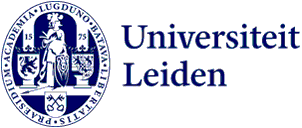
‘American’ Black Power movement was also active in the Kingdom of the Netherlands
When you hear ‘Black Power’, you probably think of the United States. But in the 60s and 70s, Black Power groups were also active in the Kingdom of the Netherlands. This is what PhD candidate Debby Esmeé de Vlugt has discovered.
‘I think it’s every historian’s dream to write a history that has not been written before’, De Vlugt says about her research. As an American Studies student, she became intrigued by the Black Power movement in the United States. After completing her degree, she went looking for a similar (as yet undocumented) Dutch movement and there proved to be one: there were individuals and groups in Suriname, Curaçao and the Netherlands itself with an affinity to Black Power and sometimes direct links even to the American movement.
Cyriel Karg
Cyriel Karg, for example. Born in Suriname and serving in the Dutch marines during the Second World War, he then moved to New York, where he worked as a journalist for the black newspaper Amsterdam News. He also joined the NAACP, the largest black civil rights organisation in the 20th century. Love brought him back to Suriname, where years later he would become the co-founder and leader of the Suriname Black Power group Afro Sranen.

Karg’s own experiences, for example in the Dutch marines, informed his activism, says De Vlugt. Despite returning to Suriname, he continued to feel a strong connection to kindred spirits in America. ‘In 1970, he visited a Black Power conference in Atlanta and spoke to around 3,000 activists from America, Africa and the Caribbean about the situation in the Kingdom of the Netherlands. He was also in contact with the Nation of Islam, the group Malcolm X had belonged to, and the Republic of New Africa, a black nationalist organisation in the United States. In that sense, Karg was the embodiment of the ties between the Black Power movement in America and the one in the Kingdom.’
Anticolonial
Despite these ties, there were differences between the Black Power groups in the Kingdom of the Netherlands and the United States. In contrast to the US movement, the organisations in the Kingdom placed a much greater emphasis on anticolonialism, De Vlugt explains. But there were also differences within the Kingdom.
Differences between Suriname, Curaçao and the Netherlands.
‘In Suriname, Black Power was often seen as a counterreaction by the African population to the increasing power of Indo-Surinamers in Surinamese politics. At first, Afro-Sranen tried to make it clear that it was against not Indo-Surinamese power but Dutch imperialism but the focus later shifted towards African solidarity. In Curaçao, where white and Jewish elites held power, Black Power made more use of the same kind of racial tensions as could be found in America.’ In the Netherlands, Black Power activism came more from white groups standing in solidarity with the African-American movement.

For her research, De Vlugt read ‘thousands’ of archive documents. ‘Without knowing whether they would be relevant to my research’, she says. ‘As no research had yet been done into the “Dutch” Black Power movement, I often had to try my luck and see if anything jumped out.’ To find out more about Cyriel Karg, she flew to Suriname and spoke to his son Luciën. ‘He gave me access to his father’s personal archives and spoke in detail about his life. That was invaluable.’
She does not see her research as a definitive history but rather a first step toward more. ‘Although I think more research can be done on the Black Power movement, I am pleased to be able to tell this story. It was not yet covered in the literature and now that is.’
Debby Esmeé de Vlugt now works at Utrecht University. She will defend her dissertation A New Feeling of Unity: Decolonial Black Power in the Dutch Atlantic (1968-1973) on 8 May.
Text: Tim Senden
Main photo: Elbert Howard, co-founder of the American Black Panther Party, gives a speech in 1970 in Mozes en Aäronkerk in Amsterdam / National Archive / CCO
